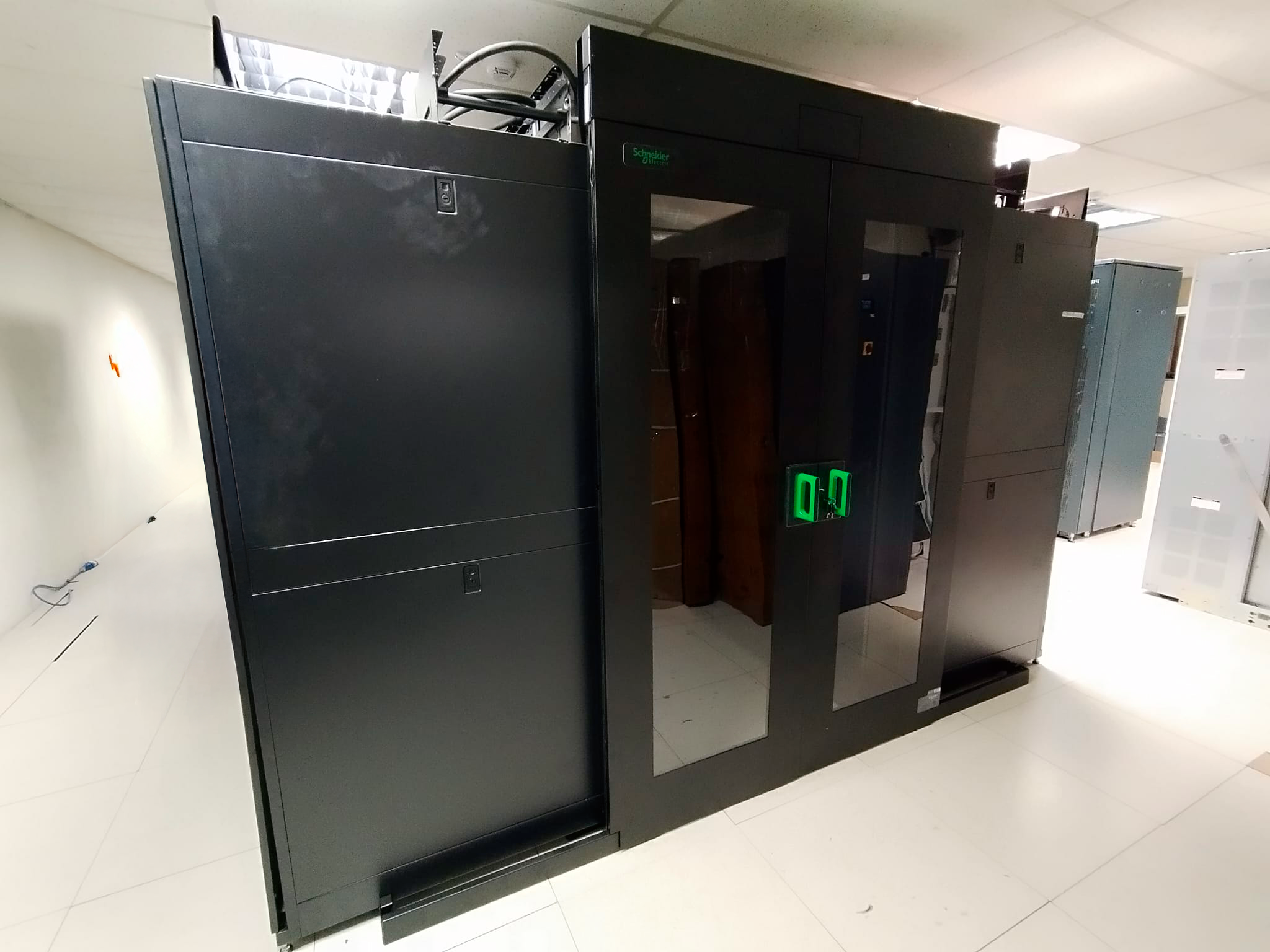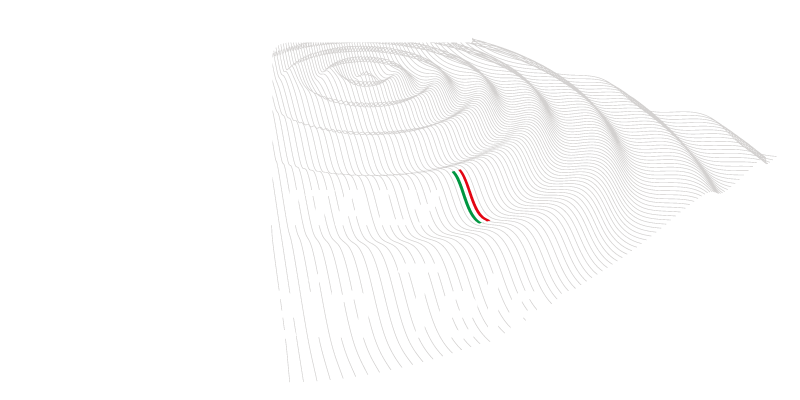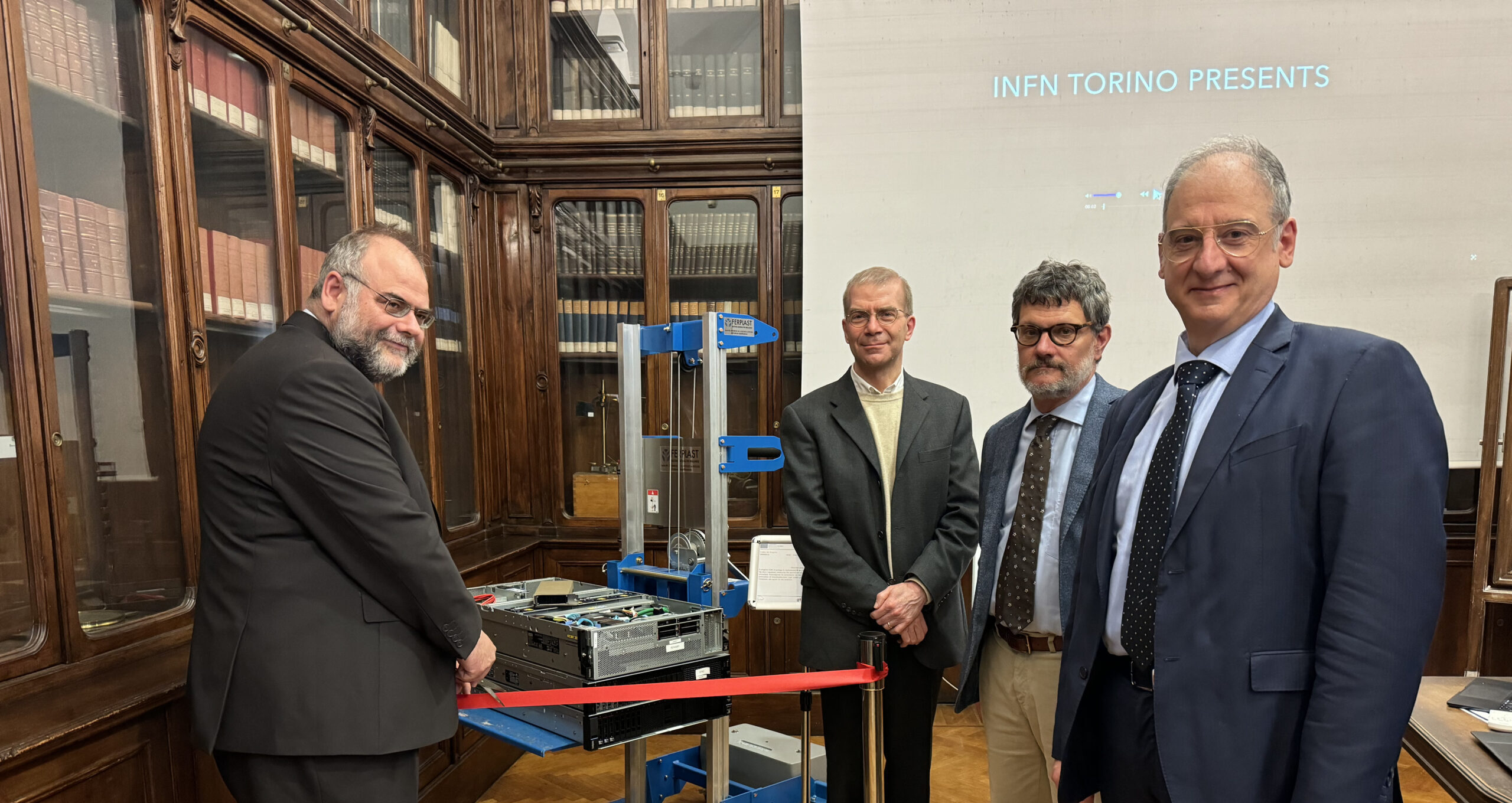On Monday, April 14, in the Wataghin Hall of the Department of Physics at the University of Turin, the CTLab4ET (Computing Technology Laboratory for Einstein Telescope) was inaugurated. This laboratory is dedicated to the evaluation and development of computing technologies that could be of interest for data analysis for the future gravitational wave observatory, Einstein Telescope (ET).
The creation of the laboratory is part of the objectives of the ETIC project, funded by the Italian Ministry of University and Research (MUR) under Mission 4 of the National Recovery and Resilience Plan (PNRR, of which the National Institute for Nuclear Physics (INFN) is the lead institution. ETIC aims to support Italy’s candidacy to host ET in Sardinia, in the area of the former Sos Enattos mine in the Nuoro province, through the characterization of the proposed site and the establishment of a network of cutting-edge research laboratories across Italy.
The inauguration event was also an opportunity to present the enhancement of the scientific computing center of the INFN Turin section. Speakers included Marco Maggiora, director of INFN Turin; Mauro Campanella, head of international research projects for the Italian Research and Education Network (GARR); Michele Punturo, scientific coordinator of the ETIC project and international leader for the Einstein Telescope; and Stefano Bagnasco, head of the INFN Turin computing center and the CTLab4ET laboratory.
The enhancement of the Turin computing center is funded not only by ETIC, but also by the PNRR ICSC – National Research Center in HPC, Big Data and Quantum Computing and TeRABIT projects. The former aims at building a new national digital infrastructure and developing methods and applications to support research, industry, and society, while the latter aims to create an integrated high-performance computing and networking infrastructure based on next-generation optical fiber, capable of data transfer at terabit speeds (1,000 billion bits per second). The new network connection provided by TeRABIT will also benefit the Sos Enattos site, which is a candidate to host ET.
«The Turin computing center has over twenty years of experience in designing and managing distributed computing infrastructures. Defining the computing model for the Einstein Telescope, which will begin acquiring data in more than ten years, is particularly challenging: the resource requirements will be far greater than those of second-generation observatories. And while computing technologies are evolving very rapidly, the ET project already needs an infrastructure to develop data analysis algorithms, simulations, and much more», says Stefano Bagnasco. «The challenge is to design a system that can immediately support the scientific collaboration while also evolving to take full advantage of new technologies as they emerge. In particular, CTLab4ET will provide a platform for technology tracking, a system available to the collaboration for testing new hardware and software architectures, with a special focus on artificial intelligence algorithms».

Hot aisle of the machine room at the INFN Turin computing center.

